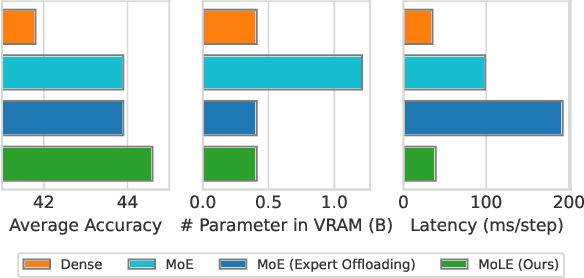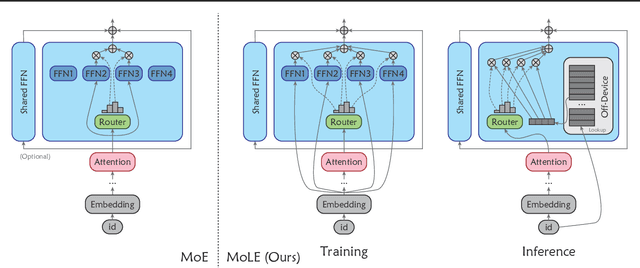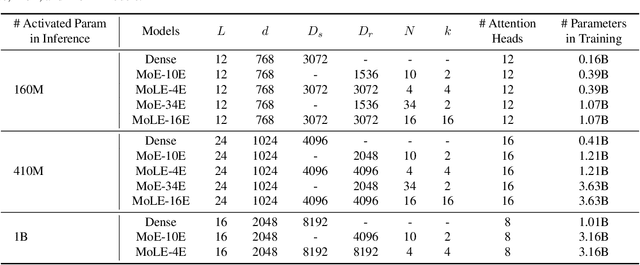Mixture of Lookup Experts
Paper and Code
Mar 20, 2025



Mixture-of-Experts (MoE) activates only a subset of experts during inference, allowing the model to maintain low inference FLOPs and latency even as the parameter count scales up. However, since MoE dynamically selects the experts, all the experts need to be loaded into VRAM. Their large parameter size still limits deployment, and offloading, which load experts into VRAM only when needed, significantly increase inference latency. To address this, we propose Mixture of Lookup Experts (MoLE), a new MoE architecture that is efficient in both communication and VRAM usage. In MoLE, the experts are Feed-Forward Networks (FFNs) during training, taking the output of the embedding layer as input. Before inference, these experts can be re-parameterized as lookup tables (LUTs) that retrieves expert outputs based on input ids, and offloaded to storage devices. Therefore, we do not need to perform expert computations during inference. Instead, we directly retrieve the expert's computation results based on input ids and load them into VRAM, and thus the resulting communication overhead is negligible. Experiments show that, with the same FLOPs and VRAM usage, MoLE achieves inference speeds comparable to dense models and significantly faster than MoE with experts offloading, while maintaining performance on par with MoE.
 Add to Chrome
Add to Chrome Add to Firefox
Add to Firefox Add to Edge
Add to Edge